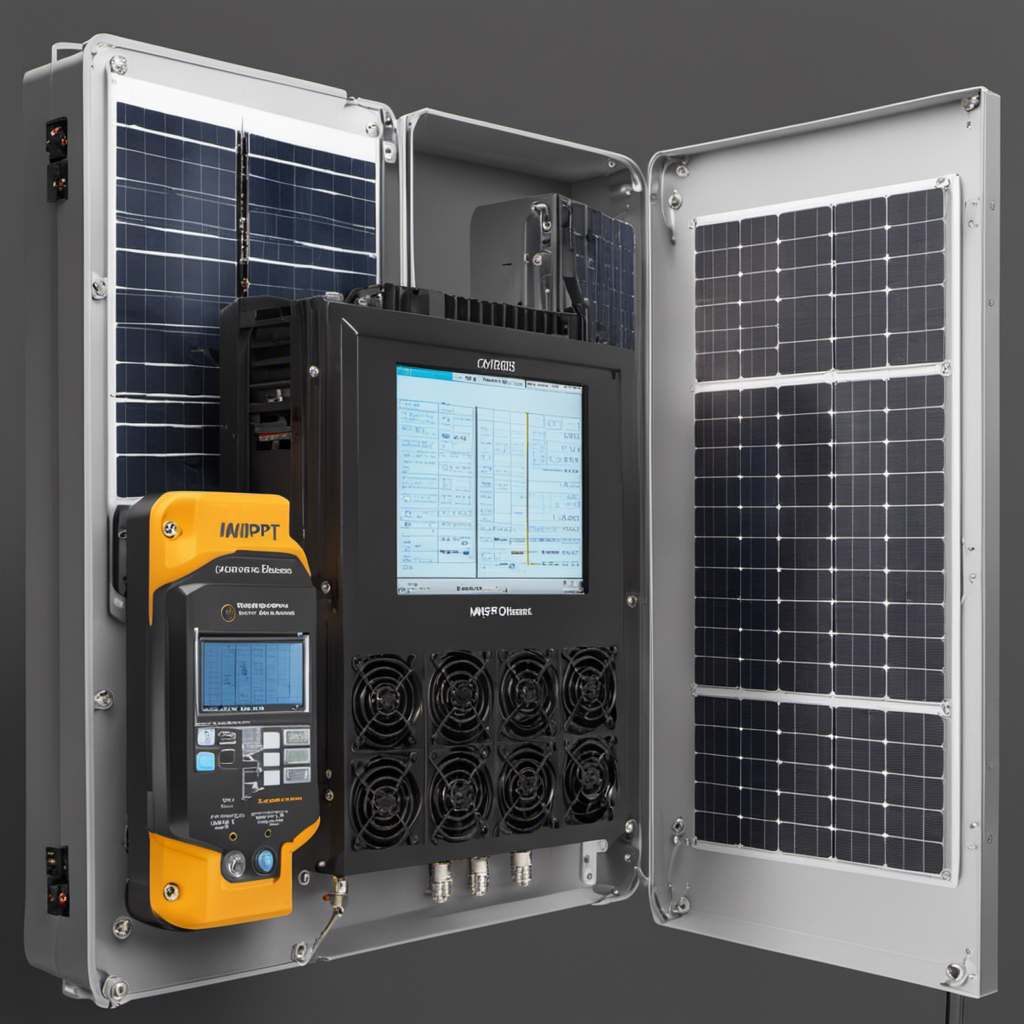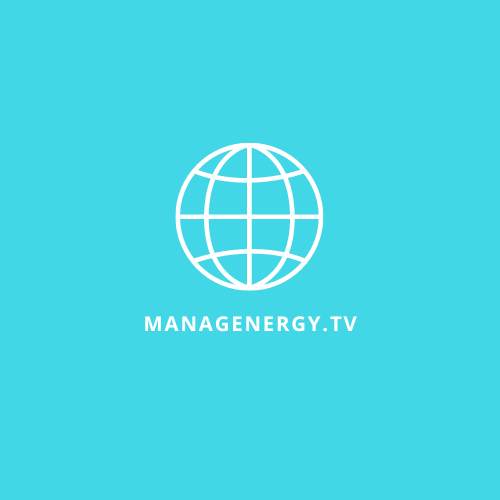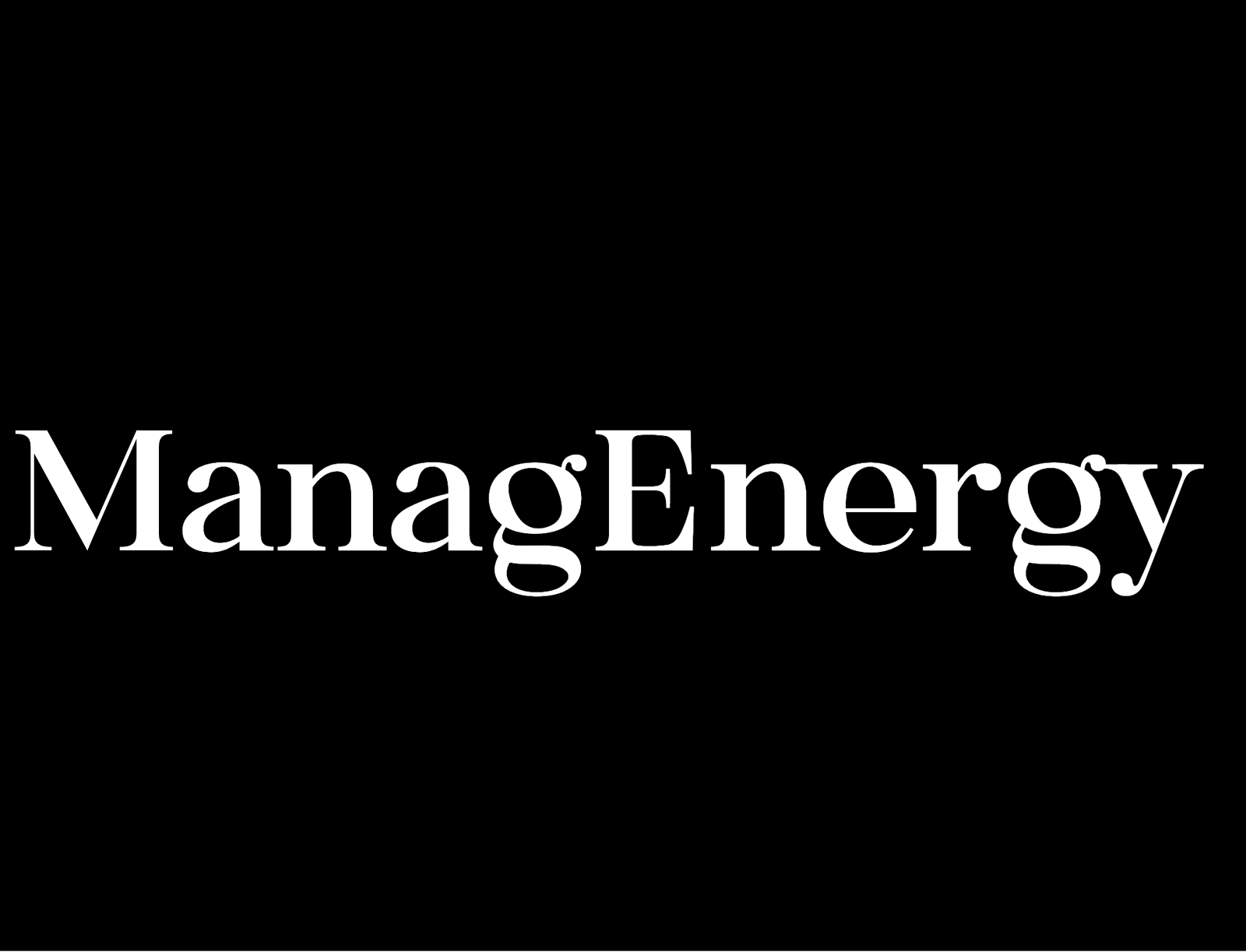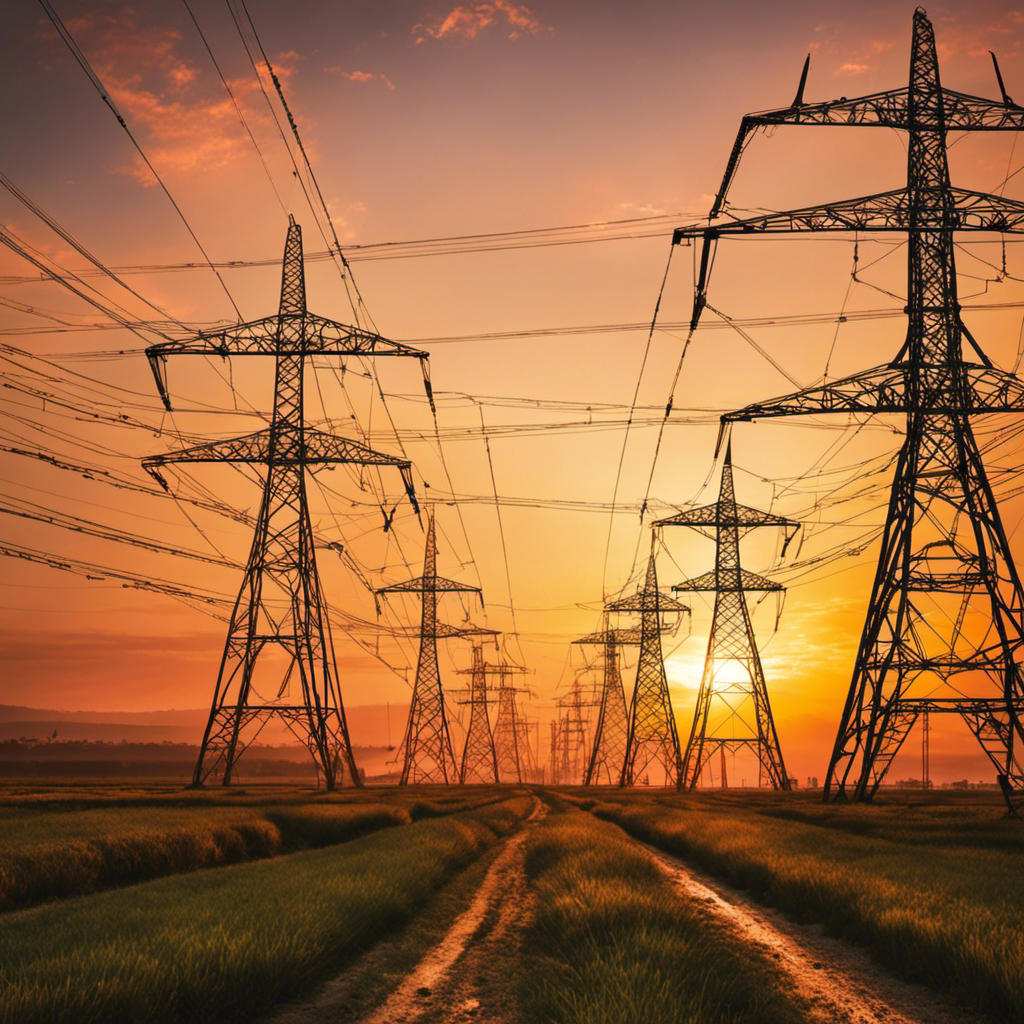Solar
Solar Homes For Rental Homes Cost More But Are More Efficient

Homes powered by solar energy, or solar homes, harness the sun’s power for their electrical and heating requirements. Although constructing or upgrading these homes to use solar power may have a higher initial cost than standard homes, they could be more efficient when it comes to energy use. This efficiency could result in reduced utility bills for the homeowner.
For rental homes, the cost of incorporating solar power can be passed on to renters in the form of higher rent. However, the energy savings from the solar panels can also be passed on to the renters, potentially making the higher rent more appealing. Additionally, solar homes can be more attractive to renters who are environmentally conscious and looking for energy-efficient housing options.
It’s worth noting that the cost of solar power has been decreasing over time and is becoming more affordable for many people. Additionally, there are often government incentives and tax credits available for homeowners who install solar power systems in their homes.

Solar homes for rental properties can cost more than other types of buildings, but they can also help you increase the value of your property. There are tax incentives to consider, and they can also help you reduce your utility bills.
Lower Utility Bills
The best solar powered rental homes may be pricier than their gas and electric counterparts, but they are more efficient, and have the potential to make you money in the long run. A solar power system can provide a real return on your investment and can save you hundreds of dollars per year in electricity costs.
There are many options for installing a solar power system. In fact, the cost of the system can vary depending on your location. To get a better idea of what your local utility costs will be, you can check out the rates from your local electric provider. You can also take advantage of federal funding and state and municipal rebates.
Solar power systems also offer more security and peace of mind for your tenants. For example, solar panel systems can be installed with a backup battery in case of a power outage. This can give tenants the comfort of knowing their property is safe and that their electric bills will not be affected.
If you’re interested in making some serious bucks, a solar powered rental home is the way to go. It can pay for itself in as little as a few years and you will be well on your way to saving the earth as you go. With an average sized array, you could expect to earn 4.1% more on a sale of your home compared to a comparable non-solar home. Plus, you might be able to entice a better tenant as you shave some of that utility cost off the top of your rent.

The best part is that you can have a little fun with it. There are many different ways to make your home a better place for you and your tenants. From solar energy to improved heating and cooling to a fully automated garage door opener, your rental property can be a greener, and more efficient home. The most important factor is to find the right mix of energy providers to meet your needs. Some states have better deals than others. By researching your options, you can make the most of the solar power for you and your family.
Increased Cash Flow
Solar rental homes are becoming an increasing trend. They increase the value of the home, cut down on utility bills, and help to reduce the carbon footprint. In addition to these benefits, the homeowner may also benefit from tax savings.
If you have a property with a garage or an outdoor parking space, you can charge a monthly rental fee. This will boost your cash flow. It will also be a good way to get a tenant to stay longer.
Solar panels can also raise the rent, making it more profitable. But it’s not always easy to convince a landlord to install these systems. Generally, you’ll need to do some research.
The first step is to understand the solar costs. Getting a free solar quote is a great place to start. You can compare the amount you can save on utilities with the cost of the panel.

Another option is to refinance your mortgage. The cash flow from a refinancing loan can be put to use in many ways. One of the largest expenses is debt service, so reducing it can be a big help. A loan that is energy efficient will also lower the payment. Refinancing can also extend the repayment period.
Adding insulation or replacing old windows can help to reduce heating and cooling costs. These features can also help to improve the comfort of your tenants.
If your building does not have a covered garage, you might consider adding one. For instance, you can rent a detached garage for $100 a month or more in many markets. Alternatively, you can convert the garage into an additional bedroom.
Lastly, you can add an ADU. An ADU is a unit you can rent in addition to the main house. Renters can pay for electricity and heat through an ADU, and you’ll be able to generate additional income.
Many landlords prefer to rent single-family houses. However, adding an ADU can make a rental property more desirable to prospective renters.
Solar panels can be installed to a rental home without having to sell the home. Landlords who opt for this option are likely to see an increase in cash flow, and the investment will pay for itself quickly.
Improved Resale Value
For the home owner who’s considering selling up, a home powered by solar energy is a great way to go. Not only will you enjoy lower utility bills, but your home will also enjoy a healthy increase in value as well. Homeowners should take the time to learn about the benefits of using solar technology.
Fortunately, there are many companies that can help you get the most for your buck. One of the best places to start is with a realtor who specializes in this type of real estate. Many of these agencies will also be able to connect you with a loan officer. The lender of choice for many consumers is usually a local bank. In most cases, the lender will not be the most receptive to solar lease payments. However, with the right strategy, a loan officer will not be the only obstacle.
A study by Zillow suggests that installing a solar energy system on your home can increase the value of your property by up to 30 percent. While the price of your new system will certainly be an upfront expense, it’s a small price to pay for peace of mind and improved quality of life. Some lenders even offer a no money down option! As for the rest of your mortgage, your credit rating may be a factor, but it’s worth a try.
Although the aforementioned study found that the fabled home with the most solar panels may not be the most popular in your area, you should know that you’re not the only one who’s interested. According to the latest data, homes with solar panels are on the rise. With the cost of electricity soaring, homeowners are looking for ways to reduce their carbon footprint while still enjoying the luxuries of modern life. It’s not uncommon to find a home powered by solar in the upscale residential segment of the market. This trend is expected to continue as more people seek to improve their quality of life by taking a more holistic approach to their energy consumption.
There are no guarantees in real estate, but the evidence that a home powered by solar can increase your property’s value is strong. For the home owner who’s considering selling, make sure to take advantage of the newfound benefits, while ensuring that you do all you can to avoid costly and unnecessary repairs in the future.
Tax Incentives
If you want to save money on your energy bill, consider installing solar panels on your home. While it isn’t possible for everyone, you may be able to get financial incentives to reduce your cost. For example, the federal government offers a 30% tax credit for the purchase and installation of a solar system.
There are also state-level tax incentives for solar. In New Jersey, for instance, residents can claim a sales tax exemption on the purchase of a solar system. This can save homeowners up to $1,000.
However, the sale tax exemption does not apply to the rebate that you receive. To qualify for the rebate, you must buy a system from a solar vendor. Then you file a rebate with your local government or another organization.
Many utilities offer ongoing rebates to their customers who install solar. These incentives can be as high as $200 per kilowatt (kW) of solar power installed.
While some state governments provide additional tax incentives, the best way to save money on solar is with the federal tax credit. It can be applied to residential and commercial systems. As a result, the total amount of savings will depend on the size of the system.
Additionally, some states allow solar rental homes to get a tax incentive. These incentives do not apply to leases. However, you can sell these credits to utility companies.
Aside from the federal and state tax credit, many cities and towns offer tax breaks for installing solar. They may also offer property tax exemptions. You may even be able to stack these tax breaks.
Adding solar panels to your home can add value to your property. And it can also help to lower your electric bills. Your solar energy savings will vary depending on your area’s weather and electricity rates.
But if you don’t have time to research your options, you can always use a solar contractor to find out what incentives are available in your area. He or she can help you apply for and take advantage of these programs.
Remember, however, that you can’t use a private letter ruling to rely on other taxpayers. Consult a tax professional or a solar provider before making any decisions.
Hi, I’m David. I’m an author of ManagEnergy.tv where we teach people how to save energy and money in their homes and businesses.
I’ve been a writer for most of my life and have always been interested in helping people learn new things. When I was younger, I would write short stories for my classmates and teach them how to do math problems.
I love traveling and have been lucky enough to visit some fantastic places around the world.
Solar
Choosing Solar Power: A Sustainable Energy Solution

I’m thrilled to introduce you to the amazing possibilities solar energy presents as a renewable power resource.
Did you know that solar power can reduce carbon emissions by replacing non-renewable fossil fuels? With solar panels, we can harness clean and renewable energy from the sun, making a positive impact on our environment.
Not only does solar power offer environmental benefits, but it also provides cost savings in the long run.
Let’s explore the advantages and considerations of choosing solar power for a more sustainable future.
Key Takeaways
- Solar power is a clean and renewable energy source that does not create carbon dioxide and can help reduce reliance on non-renewable energy sources.
- Solar power offers long-term benefits that can more than pay for itself, with reduced monthly bills and year-round energy efficiency.
- The cost of a solar power system can vary depending on factors such as panel size and location, but solar power has become more affordable and is the cheapest option for electricity generation in some countries.
- Net metering allows homeowners to sell excess power generated by solar systems to the utility at a wholesale rate, saving money and encouraging more renewable energy investments.
Environmental Benefits of Solar Power
I believe that solar power is a clean and renewable energy source. It does not create carbon dioxide and can help reduce reliance on non-renewable energy sources, mitigating climate change.
Solar power has the potential to significantly reduce carbon dioxide emissions. It does not release any greenhouse gases during electricity generation. By harnessing energy from the sun, solar power provides a sustainable and environmentally friendly alternative to fossil fuels.
In addition to being renewable, solar power also offers long-term benefits. These include reduced monthly bills and year-round energy efficiency. The use of solar panels can contribute to a more sustainable future by reducing our carbon footprint and promoting the transition towards cleaner and greener sources of energy.
Cost and Savings With Solar Power
Installing solar panels initially may be expensive, but they offer long-term cost savings and increased energy efficiency. Solar power affordability is a key consideration for many individuals looking to transition to renewable energy sources. The financial benefits of solar power are significant, with reduced monthly bills and year-round energy efficiency. The cost of a solar power system can vary depending on factors such as panel size and location, but the long-term benefits can more than pay for itself. In fact, solar power has become more affordable and is now the cheapest option for electricity generation in some countries. Location, roof orientation, and panel size can impact the cost-effectiveness of a solar power system, so careful planning is essential to maximize the long-term financial benefits.
| Solar Power Affordability | Long Term Financial Benefits |
|---|---|
| Reduced monthly bills | Increased energy efficiency |
| Cheapest option in some countries | Cost more than pays for itself |
| Varies depending on factors | Maximizes long-term financial benefits |
The Role of Net Metering in Solar Power
Net metering is a policy that allows homeowners to sell excess solar power back to the utility at a wholesale rate. It is an important aspect of solar power systems, offering several benefits to both homeowners and the environment.
Current policies on net metering vary across different states, with some offering more favorable terms than others. The benefits of net metering include cost savings for homeowners, as they can offset their electric bills and even earn credits for the excess energy they generate. This encourages renewable energy investments and helps reduce reliance on non-renewable energy sources.
Additionally, net metering programs are being updated to consider factors such as energy storage batteries and accurate valuations of solar energy. Overall, net metering plays a crucial role in promoting the adoption of solar power and creating a more sustainable energy future.
Factors to Consider When Choosing Solar Power
One important factor to consider when deciding to switch to solar is the location of your home and its access to sunlight throughout the day.
The installation process for solar panels involves mounting them on your roof or in your yard, connecting them to an inverter, and wiring them to your electrical system.
Maintenance requirements for solar panels include regular cleaning to remove dirt and debris, as well as monitoring their performance to ensure optimal efficiency.
It is also important to consider the size and orientation of your roof, as well as any shading from trees or nearby buildings that could affect the amount of sunlight your panels receive.
Additionally, you may need to obtain permits and meet certain requirements set by your local utility company.
Overall, careful consideration of these factors will ensure a successful transition to solar power.
Advantages of Solar Power for a Sustainable Future
I believe that harnessing solar energy is a crucial step towards a more environmentally friendly and sustainable future.
Solar power has several advantages that make it a promising solution for our energy needs.
One of these advantages is its potential to provide electricity to rural areas. Many remote communities lack access to reliable energy sources, but solar power can be harnessed in these areas to provide clean and affordable electricity.
Additionally, solar power has the potential to create jobs. The solar industry already employs thousands of people, and as the demand for solar energy continues to grow, so will the need for skilled workers.
Investing in solar power not only helps the environment but also stimulates economic growth and job creation.
Frequently Asked Questions
How Does Solar Power Compare to Other Renewable Energy Sources, Such as Wind Power or Hydropower?
Solar power, wind power, and hydropower are all renewable energy sources, but they have their own pros and cons.
Solar power is clean, renewable, and can be harnessed almost anywhere. It doesn’t require large land areas like wind power or alter ecosystems like hydropower. However, solar panels are only effective during daylight hours and can be expensive to install.
Wind power and hydropower have their own advantages and disadvantages, such as their impact on wildlife and the need for specific geographical conditions.
Are There Any Government Incentives or Tax Credits Available for Installing Solar Panels?
Yes, there are government incentives and tax credits available for installing solar panels. These incentives and credits vary by country and region.
In the United States, for example, the federal government offers a solar investment tax credit (ITC) that allows homeowners to deduct a percentage of the cost of their solar panel system from their federal taxes. Additionally, some states and local governments may offer additional incentives such as rebates or grants to encourage the adoption of solar power.
How Long Do Solar Panels Typically Last, and What Maintenance Is Required?
Solar panels typically last for around 25 to 30 years, depending on various factors such as the quality of the panels, installation, and maintenance. Regular cleaning and inspection are necessary to ensure optimal performance.
Occasional repairs may be required, such as replacing damaged or worn-out components. It is important to follow manufacturer guidelines and seek professional assistance when needed.
Proper maintenance can help maximize the lifespan of solar panels and ensure their efficiency in generating sustainable energy.
Can Solar Power Be Used for Heating and Cooling, or Is It Only for Generating Electricity?
Solar power can be used for heating and cooling in addition to generating electricity. For residential use, solar thermal systems can be installed to heat water or provide space heating. These systems use the sun’s energy to heat a fluid, which is then used to warm the water or air.
In industrial applications, solar thermal systems can be used for process heating or to generate steam for power generation.
Overall, solar power offers a versatile and sustainable solution for both residential and industrial energy needs.
Is It Possible to Install Solar Panels on a Property With a Lot of Shade or Limited Sunlight?
Yes, it’s possible to install solar panels on a property with a lot of shade or limited sunlight. There are shade-friendly solar panel options available that can maximize solar power output in low sunlight conditions. These panels are designed to still generate electricity even when partially shaded.
While shade can reduce the overall efficiency of solar panels, advancements in technology have made it possible to still harness solar energy in less ideal conditions.
Conclusion
In conclusion, choosing solar power as a sustainable energy solution offers a myriad of benefits.
The image of a clean and renewable energy source, harnessing the power of the sun, comes to mind. By opting for solar power over electric power generated from fossil fuels, we reduce carbon emissions and mitigate climate change.
Moreover, the long-term cost savings, despite the initial installation expense, paint a picture of a wise investment. Net metering adds another layer of financial advantage, as homeowners can offset their electric bills and even earn money by selling excess power.
Overall, solar power paves the way for a more sustainable and eco-friendly future.
Solar
Choosing the Right Solar Controller: MPPT Vs PWM

Selecting the appropriate solar controller requires careful consideration. Should you opt for MPPT or PWM? Making this choice can be challenging, but it’s crucial to grasp the distinctions.
MPPT controllers are more efficient in overcast conditions, making them ideal for battery charging. They can handle larger systems and higher voltages, but they come with a higher price tag.
On the other hand, PWM controllers are cheaper and can handle heavier loads, but may take longer to charge batteries.
The choice is yours, and it’s an important one.
Key Takeaways
- MPPT controllers are more efficient in low light or cloudy conditions.
- MPPT controllers are better suited for battery charging applications.
- PWM controllers are less expensive than MPPT controllers.
- MPPT controllers can handle larger systems and higher voltages.
Efficiency Comparison: MPPT Vs PWM Controllers
In my experience, MPPT controllers have proven to be more efficient than PWM controllers when it comes to maximizing power output in overcast conditions.
MPPT controllers adjust voltage to achieve the maximum power point, making them highly effective in capturing power from the sun, even in low light conditions. This efficiency translates into cost effectiveness, as MPPT controllers save money on battery charging costs by extracting more power from the solar panels.
Additionally, MPPT controllers have superior battery charging capabilities, ensuring that batteries are charged efficiently and effectively. With an efficiency range of 93-97%, MPPT controllers are a reliable choice for maximizing power output in overcast conditions.
They are able to handle larger systems and higher voltages, making them a preferred option for those seeking optimal performance from their solar systems.
Performance in Overcast Conditions: MPPT Charge Controllers
During overcast conditions, the efficiency of MPPT charge controllers allows for maximum power collection from solar panels. MPPT charge controllers have distinct advantages in low light conditions compared to PWM controllers.
When the weather is cloudy, MPPT controllers adjust the voltage to achieve the maximum power point, resulting in higher charging efficiency. In contrast, PWM controllers reduce the voltage of solar panels, resulting in decreased power collection.
MPPT controllers are specifically designed for battery charging applications and can handle larger systems and higher voltages. In cloudy weather, MPPT controllers save money on battery charging costs due to their high efficiency, which ranges from 93% to 97%.
Therefore, when considering the charging efficiency in low light conditions, MPPT charge controllers are the better choice over PWM controllers.
Handling Varying Voltages: MPPT and PWM Controllers
When it comes to handling varying voltages, charge controllers play a crucial role in preventing overcharging batteries and maximizing system efficiency.
MPPT controllers have distinct advantages over PWM controllers in terms of efficiency. They adjust the voltage to achieve the maximum power point, resulting in higher efficiency, especially in overcast conditions. MPPT controllers save money on battery charging costs and have an efficiency range of 93-97%.
Additionally, MPPT controllers are better suited for larger systems and higher voltages.
On the other hand, PWM controllers, although less expensive, are less efficient and may reduce the voltage of solar panels. They may not provide enough power for charging batteries and may take longer to charge them.
Therefore, when choosing between MPPT and PWM controllers, it is important to consider the size of the system and the desired level of efficiency.
Downsides of PWM Charge Controllers
I have found that the downsides of PWM charge controllers include their lower efficiency compared to MPPT controllers, the potential reduction in voltage of solar panels, and the possibility of not providing enough power to charge batteries.
- Lower efficiency compared to MPPT controllers
- Potential reduction in voltage of solar panels
- Possibility of not providing enough power to charge batteries
- Limitations of PWM charge controllers
PWM charge controllers have a lower efficiency compared to MPPT controllers. This means that they are not able to convert as much of the solar panel’s energy into usable power. Additionally, PWM controllers have the potential to reduce the voltage of solar panels, which can affect the overall performance of the system. Another drawback of PWM controllers is the possibility of not providing enough power to charge batteries effectively. This limitation can result in longer charging times and less reliable battery performance.
It is important to consider these drawbacks when choosing between PWM and MPPT charge controllers to ensure the most efficient and effective solar power system.
Considerations for Choosing the Right Solar Controller
One important factor to consider when selecting a solar controller is the size of the system and its specific requirements. It is essential to analyze the advantages and disadvantages of both MPPT and PWM controllers to make an informed decision. The following table provides a comprehensive comparison between the two types of controllers:
| MPPT Controllers | PWM Controllers | |
|---|---|---|
| Advantages | Adjust voltage to collect more power | Less expensive |
| More efficient in low light or cloudy conditions | Can handle heavier loads | |
| Better suited for battery charging applications | ||
| Disadvantages | More costly | Less efficient |
| Reduce voltage of solar panels | ||
| May not provide enough power for charging batteries | ||
| May take longer to charge batteries |
Understanding these considerations will help in selecting the right controller for your solar system.
Cost Analysis: MPPT Vs PWM Controllers
The cost analysis reveals that MPPT controllers are more expensive than PWM controllers. However, it is important to consider the benefits and drawbacks of each type of controller before making a decision. Here are some key points to consider:
-
Cost Comparison: MPPT controllers are more expensive upfront, but their higher efficiency can save money on battery charging costs in the long run.
-
Battery Charging Efficiency: MPPT controllers have an efficiency of 93-97%, which means they can collect more power from sunlight and charge batteries more efficiently than PWM controllers.
-
System Size: If you have a larger system or higher voltages, MPPT controllers are more efficient and better suited for the job.
-
Consider Your Needs: Analyze the size and requirements of your system to determine whether the higher cost of an MPPT controller is worth the increased efficiency in battery charging.
Frequently Asked Questions
What Is the Difference in Cost Between MPPT and PWM Controllers?
The cost comparison between MPPT and PWM controllers is an important factor to consider when choosing a solar controller.
While MPPT controllers are more expensive than PWM controllers, they offer numerous benefits.
MPPT controllers are more efficient, especially in low light or cloudy conditions, and can handle larger systems and higher voltages. They also save money on battery charging costs.
Ultimately, the decision should be based on the size of the system and the specific requirements of the application.
Can PWM Controllers Be Used in Utility Scale Installations?
No, PWM controllers cannot be used in utility scale installations due to their limitations. MPPT controllers, on the other hand, offer significant benefits in such installations.
They are more powerful, allowing for the connection of more solar panels in series. Additionally, MPPT controllers are more efficient and cost-effective in the long run, making them the ideal choice for utility scale projects.
Understanding these differences is crucial in selecting the right controller for optimal system efficiency.
How Do MPPT Controllers Adjust Voltage to Achieve Maximum Power Point?
MPPT controllers, using advanced technology, adjust voltage to achieve maximum power point. This means they optimize the voltage output of the solar panels to collect the maximum power available.
By regulating the voltage, MPPT controllers ensure that the solar panels are operating at their most efficient point. This allows for better power production, especially in low light or overcast conditions.
Overall, MPPT controllers offer superior performance and are ideal for maximizing the power output of a solar system.
Can PWM Controllers Handle Larger Systems and Higher Voltages?
No, PWM controllers cannot handle larger systems and higher voltages. They have limitations such as being less efficient and reducing the voltage of solar panels.
On the other hand, MPPT controllers have several benefits. They adjust voltage to achieve maximum power point, resulting in higher efficiency. MPPT controllers are more powerful and can connect more solar panels in series.
However, it’s important to analyze the size of the system to determine the right controller for optimal performance.
Are MPPT Controllers Always More Efficient Than PWM Controllers in Overcast Conditions?
MPPT controllers are generally more efficient than PWM controllers in overcast conditions. They can adjust voltage to achieve the maximum power point, saving money on battery charging costs.
However, it’s important to note that MPPT controllers also have limitations. They are more expensive than PWM controllers and may not be as suitable for smaller systems.
On the other hand, PWM controllers have advantages such as being less expensive and allowing systems to run at higher voltages.
Conclusion
In conclusion, the decision between MPPT and PWM solar controllers depends on the specific needs and requirements of your system. MPPT controllers are highly efficient, especially in overcast conditions, making them ideal for battery charging applications. They can handle larger systems and higher voltages, but they do come at a higher cost.
On the other hand, PWM controllers are more cost-effective for smaller systems and allow for running systems at higher voltages.
As the old adage goes, "Choose wisely, for the right solar controller can be the sunshine that powers your system."
Solar
Choosing Between Photovoltaic and Solar Panels: A Comparative Guide

I’m here to assist you in making a decision between photovoltaic (PV) panels and solar panels.
Did you know that PV panels are more efficient at converting sunlight into usable energy compared to solar thermal panels?
In this article, we’ll explore the differences in efficiency, cost, maintenance, and storage capabilities of these two options.
By considering factors such as budget, energy output, and storage requirements, you’ll be able to make an informed decision.
Let’s dive in and find the best solution for your energy needs.
Key Takeaways
- Monocrystalline PV panels are more energy efficient and cheaper to manufacture compared to polycrystalline panels.
- PERC panels are slightly more expensive but have a lower cost per watt and can produce more electricity with fewer panels.
- Solar thermal panels have lower installation costs compared to PV panels, but PV panels are typically more efficient at converting sunlight into usable energy.
- Photovoltaic panels convert sunlight into electricity through the photovoltaic effect, while solar panels use heat from the sun to generate electricity.
Efficiency and Cost of Monocrystalline Vs Polycrystalline PV Panels
I found that monocrystalline PV panels are more energy efficient and cheaper to manufacture compared to polycrystalline panels. When it comes to performance comparison, monocrystalline panels have higher efficiency rates due to their uniform crystal structure. This allows them to convert a higher percentage of sunlight into electricity. On the other hand, polycrystalline panels have lower efficiency rates because they are made up of multiple crystals, resulting in less uniformity and more energy loss.
In terms of manufacturing cost analysis, monocrystalline panels are cheaper to produce. The manufacturing process for monocrystalline panels involves slicing thin wafers from a single crystal. This method is more efficient and results in less material waste compared to the process of melting and molding silicon fragments used for polycrystalline panels. Therefore, monocrystalline panels not only have better performance but also offer cost advantages in the manufacturing stage.
Advantages and Benefits of PERC Panels
PERC panels offer improved efficiency and can maximize energy production in a smaller area. These panels have a longer lifespan compared to other PV panels, which is advantageous for long-term energy generation.
Additionally, PERC panels have a lower environmental impact compared to traditional PV panels. The manufacturing process of PERC panels involves the use of less raw material and fewer chemicals, reducing waste and pollution.
Furthermore, the passive film in PERC panels helps to redirect unabsorbed sunlight back towards the cell, leading to improved overall efficiency. This means that PERC panels can generate more electricity with fewer panels, reducing the need for additional space and resources.
With their enhanced efficiency and reduced environmental impact, PERC panels are a sustainable and viable option for maximizing energy production.
Comparing Solar Thermal Panels and PV Panels
When comparing solar thermal panels and PV panels, it is important to consider factors such as installation costs, efficiency, and maintenance requirements.
Energy Output: PV panels are typically more efficient at converting sunlight into usable energy compared to solar thermal panels. This means that PV panels can produce more electricity for the same amount of sunlight.
Maintenance Requirements: Solar thermal panels require less maintenance and often last longer than PV panels. PV panels may require regular cleaning to maintain optimal performance, while solar thermal panels have fewer components that can wear out or break.
Budget Considerations: Solar thermal panels have lower installation costs compared to PV panels. However, PV panels may provide a higher return on investment over time due to their higher energy output.
Environmental Impact: PV panels have a smaller environmental footprint compared to solar thermal panels. PV panels do not require water for cooling, while solar thermal panels may consume water for heat dissipation.
Storage Considerations for Solar Thermal Panels
To maximize the efficiency of solar thermal panels, it is important to consider storage options for excess heat. Thermal storage options provide a means to store and utilize the excess heat produced by solar thermal panels.
This can be achieved through various heat dissipation methods, such as using insulated tanks or phase-change materials. Insulated tanks store the excess heat in a liquid medium, which can be later used for heating purposes or converted into electricity using a heat exchanger.
Phase-change materials, on the other hand, absorb and release heat during the phase transition, providing a more efficient and compact storage solution.
Understanding the Difference Between Photovoltaic and Solar Panels
I find it helpful to understand the difference between photovoltaic panels and solar panels when considering renewable energy options. Here are some key points to consider:
-
Photovoltaic panels convert sunlight into electricity through the photovoltaic effect, while solar panels use heat from the sun to generate electricity.
-
Photovoltaic panels are generally more efficient than solar panels at converting sunlight into usable energy.
-
When it comes to cost comparison, photovoltaic panels may be more expensive to install initially, but they have lower maintenance costs and can generate electricity for a longer period of time.
-
In terms of environmental impact, both types of panels have a positive effect by reducing reliance on fossil fuels. However, photovoltaic panels have a smaller carbon footprint due to their higher efficiency.
Understanding the difference between photovoltaic panels and solar panels can help you make an informed decision based on cost comparison and environmental impact.
Factors to Consider When Choosing Between Photovoltaic and Solar Panels
One important factor to consider is the overall energy efficiency of the panels. When comparing photovoltaic (PV) panels and solar panels, it is essential to understand their environmental impact and government incentives.
PV panels, which convert sunlight into electricity through the photovoltaic effect, are generally more efficient than solar panels at converting sunlight into usable energy. This higher efficiency translates to a lower environmental impact, as PV panels require fewer resources and produce fewer emissions during their lifespan.
Additionally, many governments offer incentives, such as tax credits and rebates, to encourage the adoption of PV panels. These incentives can offset the initial cost of installation and make PV panels a more economical choice.
Considering both the environmental impact and government incentives is crucial when deciding between PV and solar panels.
Frequently Asked Questions
Are There Any Environmental Considerations When Choosing Between Monocrystalline and Polycrystalline PV Panels?
When choosing between monocrystalline and polycrystalline PV panels, it’s important to consider the environmental impact.
Monocrystalline panels are more energy efficient and cheaper to manufacture, resulting in lower carbon emissions. On the other hand, the manufacturing process for polycrystalline panels leads to material loss and waste.
Efficiency-wise, monocrystalline panels also have the upper hand.
How Do PERC Panels Compare to Other Types of Solar Panels in Terms of Durability and Lifespan?
When comparing PERC panels to other types of solar panels in terms of durability and lifespan, it is important to consider their unique features.
PERC panels have a passivation layer that reduces electron recombination and improves overall efficiency. They are known for their ability to function in extreme weather conditions and have a longer lifespan.
In comparison to other panels, PERC panels have lower heat absorption, which can help save on utility bills in the long run.
Careful analysis of durability and lifespan is crucial when choosing between different types of solar panels.
Can Solar Thermal Panels Be Used in Conjunction With PV Panels to Maximize Energy Production?
Yes, solar thermal panels can be used in conjunction with PV panels to maximize energy production.
By combining both types of panels, you can harness the power of sunlight for both electricity generation and heat production. This allows for a more efficient use of solar energy and can significantly increase overall energy output.
The benefits of combining solar thermal and PV panels include increased energy production, reduced reliance on traditional energy sources, and potential cost savings in the long run.
Are There Any Government Incentives or Rebates Available for Installing Solar Thermal Panels or PV Panels?
There are government incentives and rebates available for installing both solar thermal panels and PV panels. These incentives vary depending on your location and the specific program in place. It’s important to research and inquire about the available incentives in your area.
Additionally, when considering the installation of either type of panel, it is crucial to take into account the environmental considerations, such as the impact on carbon footprint and overall sustainability.
How Do the Installation Requirements Differ Between Solar Thermal Panels and PV Panels?
When it comes to the installation process, solar thermal panels and PV panels differ in a few ways. The installation requirements for solar thermal panels involve the setup of a heat transfer system. On the other hand, PV panels require the installation of mounting racks and electrical wiring.
In terms of cost-effectiveness, solar thermal panels generally have lower installation costs compared to PV panels. However, it’s important to consider other factors such as energy efficiency and long-term maintenance before making a decision.
Conclusion
In conclusion, after careful consideration of factors such as energy efficiency, cost, maintenance, and storage capabilities, it is clear that choosing between photovoltaic (PV) panels and solar panels is a crucial decision.
While PV panels, especially monocrystalline and PERC panels, offer higher energy production and better performance in extreme weather conditions, solar thermal panels have lower installation costs and require less maintenance.
However, with their incredible efficiency and potential for cost savings, PV panels shine like a supernova in the solar energy industry.
So, if you want to harness the power of the sun in the most efficient and cost-effective way possible, PV panels are the star of the show!
-

 Sustainable Supply Chain Management2 months ago
Sustainable Supply Chain Management2 months agoManagEnergy Acquires GPST2030.org Domain to Strengthen Commitment to Sustainable Transport
-

 Wind Energy2 months ago
Wind Energy2 months agoHow Much Oil Does It Take To Lubricate A Wind Turbine
-

 Electricity Vehicle2 weeks ago
Electricity Vehicle2 weeks agoThe Future of Electric Vehicles: Trends and Innovations to Watch
-

 Electric Motorbike1 week ago
Electric Motorbike1 week agoCalifornia Electric Motorcycle Laws: A Comprehensive Guide to Riding Safely
-

 Solar2 months ago
Solar2 months agoIn 2009, About What Percent Of U.S. Energy Consumption Was Supplied By Solar Energy
-

 Wind Energy2 weeks ago
Wind Energy2 weeks agoEnvironmental Innovation Turned Deadly: Ocean Wind Turbines Pose Threat to Whales’ Survival
-

 Wind Energy1 week ago
Wind Energy1 week agoRevolutionizing Highways: Wind Turbines Take the Road to Renewable Energy
-

 Solar2 months ago
Solar2 months agoWhy Should We Use Solar Energy Instead Of Fossil Fuels














